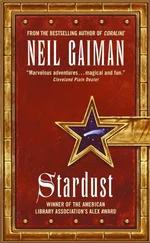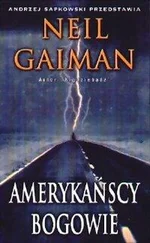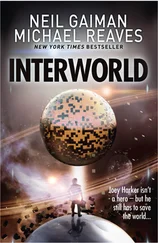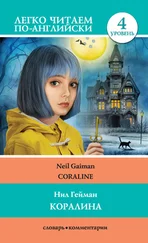Smoke Mirrors - Neil Gaiman
Здесь есть возможность читать онлайн «Smoke Mirrors - Neil Gaiman» весь текст электронной книги совершенно бесплатно (целиком полную версию без сокращений). В некоторых случаях можно слушать аудио, скачать через торрент в формате fb2 и присутствует краткое содержание. Жанр: на английском языке. Описание произведения, (предисловие) а так же отзывы посетителей доступны на портале библиотеки ЛибКат.
- Название:Neil Gaiman
- Автор:
- Жанр:
- Год:неизвестен
- ISBN:нет данных
- Рейтинг книги:3 / 5. Голосов: 1
-
Избранное:Добавить в избранное
- Отзывы:
-
Ваша оценка:
- 60
- 1
- 2
- 3
- 4
- 5
Neil Gaiman: краткое содержание, описание и аннотация
Предлагаем к чтению аннотацию, описание, краткое содержание или предисловие (зависит от того, что написал сам автор книги «Neil Gaiman»). Если вы не нашли необходимую информацию о книге — напишите в комментариях, мы постараемся отыскать её.
Neil Gaiman — читать онлайн бесплатно полную книгу (весь текст) целиком
Ниже представлен текст книги, разбитый по страницам. Система сохранения места последней прочитанной страницы, позволяет с удобством читать онлайн бесплатно книгу «Neil Gaiman», без необходимости каждый раз заново искать на чём Вы остановились. Поставьте закладку, и сможете в любой момент перейти на страницу, на которой закончили чтение.
Интервал:
Закладка:
So I wrote this one year, wrote it early for Christmas. Dave McKean calligraphed it elegantly and I sent it out to everyone I could think of My card.
It's exactly 100 words long (102, including the title) and first saw print in Drabble II, a collection of 100-word-long short stories. I keep meaning to do another Christmas card story but it's always December 15 before I remember, so I put it off until next year.
My literary agent, Ms Merrilee Heifetz of New York, is one of the coolest people in the world, and she has only once, to the best of my recollection, ever suggested that I should write a specific book. This was some time ago. "Listen," she said, "angels are big these days, and people always like books about cats, so I thought, 'Wouldn't it be cool if someone did a book about a cat who was an angel or an angel who was a cat or something?' "
And I agreed that it was a solid commercial idea and that I would think about it. Unfortunately, by the time I had finally finished thinking about it, books about angels were the-year-before-last-year's thing. Still, the idea was planted, and one day I wrote this story.
(For the curious: Eventually a young lady fell in love with the Black Cat, and he went to live with her, and the last time I saw him he was the size of a very small mountain lion, and for all I know he's growing still. Two weeks after the Black Cat left, a brown tabby arrived and moved onto the porch. As I write this, he's asleep on the back of the sofa a few feet away from me.)
While I think of it, I'd like to take this opportunity to thank my family for letting me put them in this story and, more importantly, both for leaving me alone to write, and for sometimes insisting I come out to play.
Troll Bridge
This story was nominated for a 1994 World Fantasy Award, although it didn't win. It was written for Ellen Datlow and Terri Windling's Snow White, Blood Red, an anthology of retellings of fairy tales for adults. I chose the tale of "The Three Billy Goats Gruff". Had Gene Wolfe, one of my favourite writers (and, it occurs to me now, another person who hid a story in an introduction), not taken the title many years earlier, I would have called it "Trip Trap".
Lisa Snellings is a remarkable sculptor. This was written about the first of her sculptures I saw and fell in love with: a demonic jack-in-the-box. She gave me a copy of it and has promised me the original in her will, she says. Each of her sculptures is like a story, frozen in wood or plaster. (There is one on my mantelpiece of a winged girl in a cage offering passersby a feather from her wings while her captor sleeps; I suspect that this one is a novel. We'll see.)
The Goldfish Pool and Other Stories
The mechanics of writing fascinate me. This story was begun in 1991. Three pages were written and then, feeling too close to the material, I abandoned it. Finally, in 1994,1 decided to finish it for an anthology to be edited by Janet Berliner and David Copperfield. I wrote it higgledy-piggledy on a battered Atari Portfolio palmtop, on planes and in cars and hotel rooms, all out of order, jotting down conversations and imaginary meetings until I was fairly sure it was all written. Then I put the material I had in order and was astonished and delighted that it worked. Some of this story is true.
Over a period of several months a few years ago, I wrote three narrative poems. The first, Eaten (Scenes from a Moving Picture), began, somewhere in my head, in May 1993, as a musing on the way people treat other people; and on film, and on the limits and language of film; on pornography and the low standards of pornography; on the language of film treatments and scripts; and on the relationship between food and sex. Or it began one night in 1984, when I had a nightmare in which I was being eaten alive by an elderly witch-woman; I was being kept for food, a zombie, following her around. My left arm and hand were just bone and clinging morsels of chewed flesh. I turned the dream into a story back then, but fragments of it still lingered and began, slowly, to wrap another story around themselves, layers of nacreous image accreting, layering themselves around something I would still rather not have in my head.
When I read scripts, and when I write them, I always pronounce, in my head, "Int" and "Ext" as just that, not "Interior" or "Exterior". I was surprised to discover, on showing a few early readers this poem, that other people do not do this. "Eaten" is a very literal poem, however, and pronounces these words just like I do.
The second was a retelling of a number of old English folktales called "The White Road". It was as extreme as the stories it was based on. The last to be written was a tale about my maternal grandparents and about stage magic. It was less extreme, but-I hope-just as disturbing as the two stories that preceded it in the sequence. I was proud of all three of them. The vagaries of publishing meant they were actually published over a period of years, so each of them made it into a best of the year anthology (all three of them were picked up in the American Year's Best Fantasy and Horror, one in the British Year's Best Horror, and one, somewhat to my surprise, was solicited for an international best erotica collection).
The White Road
There are two stories that have both haunted and disturbed me over the years, stories that have attracted and repelled me ever since I encountered them as a small boy. One of them is the tale of Sweeney Todd, "the demon barber of Fleet Street". The other is the tale of Mr Fox-it's a sort of English version of Bluebeard.
The versions in this retelling of the story were inspired by variants on the tale I found in The Penguin Book of English Folktales,, edited by Neil Philip: "The Story of Mr Fox" and the notes that follow it and a version of the tale called "Mr Foster", where I found the image of the white road and the way that the girl's suitor marked the trail down the white road to his gruesome house.
In the story of Mr Fox, the refrain "It was not so, it is not so, and God forbid it should be so" is repeated as a litany, through the recounting of each horror that Mr Fox's fiancee claims she saw in a dream. At the end she throws down the bloody finger, or the hand, that she took from his house and proves that everything she said was true. And then his story is effectively over.
It's also about all the strange Chinese and Japanese folktales in which, ultimately, everything comes down to Foxes.
This, like my graphic novel Mr Punch, is close enough to the truth that I have had, on occasion, to explain to some of my relatives that it didn't really happen. Well, not like that, anyway.
The Facts in the Case of the Disappearance of Miss Finch
This began when I was shown a Frank Frazetta painting and asked to write a story to accompany it. I couldn't think of a story so I told what happened to Miss Finch instead.
Lisa Tuttle phoned me one day to ask me for a story for an anthology she was editing about gender. I have always loved SF as a medium, and when I was young, I was certain that I would grow up to be a science fiction writer. I never really did. When I first had the idea for this story almost a decade ago, it was a set of linked short stories that would have formed a novel exploring the world of gender reflection. But I never wrote any of those stories. When Lisa called, it occurred to me that I could take the world I'd imagined and tell its story in the same way that Eduardo Galeano told the history of the Americas in his Memory of Fire trilogy.
Читать дальшеИнтервал:
Закладка:
Похожие книги на «Neil Gaiman»
Представляем Вашему вниманию похожие книги на «Neil Gaiman» списком для выбора. Мы отобрали схожую по названию и смыслу литературу в надежде предоставить читателям больше вариантов отыскать новые, интересные, ещё непрочитанные произведения.
Обсуждение, отзывы о книге «Neil Gaiman» и просто собственные мнения читателей. Оставьте ваши комментарии, напишите, что Вы думаете о произведении, его смысле или главных героях. Укажите что конкретно понравилось, а что нет, и почему Вы так считаете.









